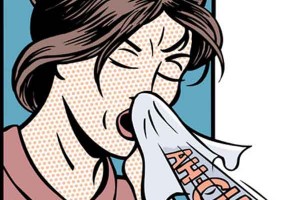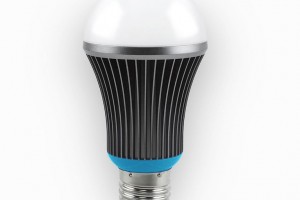I may get commissions for purchases made through links in this post.
Sleeping 8 consecutive hours is the general rule for being healthy and feeling well-rested. There are however exceptions which may apply to you. Here’s why..
Sleeping Eight Hours Straight is a New Concept
Research shows that the idea of going to bed and sleeping for eight hours straight is relatively new. Rodger Ekirch of Virginia Tech has conducted over fifteen years of research on historical sleeping patterns, and has found that earlier than the seventeenth century, people would typically sleep for three hours or so, wake for three hours or so, before going back to sleep and sleeping until morning.
Ekrich compiled over 500 references to this disjointed sleeping in literature prior to the seventeenth century and believes that this pattern of sleeping was significantly more common than what we’re used to today.
Before the seventeenth century, night was a dangerous time, with criminals rampant. Even the rich could only afford candle light, and there was little protection for the poor. Paris became the first city to light its streets, and people felt a little safer after that. Prior to the industrial revolution, survival was surrounded by the concept of family, with strict work hours being less important than they are today – lives and sleep cycles did not have to keep to a strict schedule.
Around the time of the industrial revolution, people became much more time conscious, having to work certain hours. Responsibilities changed, and perhaps that’s why people’s sleeping patterns changed too.
Ekirch’s research, although enlightening and extensive, cannot be completely conclusive. This sleeping pattern may have been a survival mechanism of the time, but was not necessarily any better or healthier than the straight eight hours a night we’re told to sleep now.
2. Different Sleep Cycles Work for Different People
The sleep/wake cycle that most of us are familiar with is the monophasic sleep cycle, where you go to bed at night, sleep for around eight hours, and then get up to start your day.
There are, however, a number of different sleeping patterns that researchers have proposed which may work better for anyone who has found themselves lying in bed, staring at the ceiling, trying to get to sleep.
If going to bed at eleven o’clock and sleeping for a solid eight hours works for you, that’s great, and stick to it. If you regularly feel tired and struggle to sleep at night, there may be a different cycle that works for you.
There are a number of options out there for those who struggle to sleep for a straight eight hours every night, from an afternoon siesta to completely revamped sleeping patterns.
3. Napping During the Day Can Do a Lot of Good
Humans are one of the very few animals who take their sleep all in one shot, and as we’ve said above, we didn’t always do so. It’s been theorised that it’s not natural for us to sleep in one eight hour shot, and many people complain that they struggle to find time to sleep for eight hours at night, or that they struggle to fall asleep.
A lack of sleep can cause one to be less alert, slower and lose concentration, but napping, which is not just for cats, college students and children, can make a world of difference.
Famous men like Winston Churchill, John F. Kennedy and Napoleon Bonaparte took regular naps and partially attributed this to their success.
Many of these famous ‘weird sleepers’ thought that sleeping was a waste of time. Salvador Dali took micro-naps taking only a second, and a lot of his creativity to just that. He used the so called ‘drop the key method’. Sitting in a chair holding a key in his hand he dozed off, dropping the key on a metal plate on the ground. This obviously woke him up. This ultimately short nap boosted his creativity as he claimed.
Many people who struggle to get a full eight hours of sleep a night find that a siesta during the afternoon can make a world of difference. Some take reaping the benefits of napping to the extreme..
4. (Controversial) Polyphasic Sleep Cycles Can Potentially Cut Down The Amount of Sleep You Need
- The Byphasic Cycle. This cycle consists of one five to six hour sleep and a 60 minute nap during the day. Research has shown this cycle to be the easiest to adapt to, and is often good for mental well-being and overall health.
- The Everyman Cycle. Designed to combat drops in alertness throughout the day, the everyman cycle consists of one 3.5 to 4 hour sleep (usually at night) and three 20 minute naps during the day. This would be a little harder to adapt to than the Byphasic Cycle, but would be manageable as it still contains a relatively long sleep like the one we are used to with the monophasic sleep cycle.
- The Dyaximon. This is a difficult cycle to adapt to, and will only really work for the rare people who can function well on four hours of sleep when following a monophasic sleep cycle. The cycle involves sleeping for 30 minutes at a time, four times per day, totalling at only two hours of sleep over a 24-hour period.
- The Uberman cycle consists only of 20 minute naps spread throughout the day. The classic method consists of six naps per day, spaced out evenly, although some have modified the cycle to consist of eight naps, again, spread evenly, finding that the extra 40 minutes makes a huge difference. It’s important to keep on schedule, as missing even one nap can leave you feeling extremely drained and tired. This is the most difficult cycle to adapt to, but works amazingly well for some. People who have adapted to this schedule have reported extremely vivid lucid dreams which is a very cool side effect.
While these polyphasic sleep cycles might work brilliantly for some people, the obvious flaw is that they require flexibility. So much of our lives are built around eight hours of work and eight hours of sleep, and while many of us wish we were allowed to take a sixty-minute nap at work, it’s not always practical.
These cycles are only really useable for people with very flexible schedules, as unfortunately, the rest of the world is working off a different one.
These sleep cycles all require a fair bit of training. The byphasic cycle, assuming you have the work schedule to accommodate it would be the easiest to adapt to, but the others, the everyman and uberman in particular would take a fair bit of training, practice and drowsiness.
If attempting to adapt to a new sleep schedule be particularly careful when driving or doing anything that requires concentration, as sleep deprivation can be as dangerous as intoxication.
Remember, if you just can’t adapt, or continue to feel drowsy and sleepy, these methods might not be right for you. There’s quite a bit controversy about polyphasic sleeping. Hailed by some practitioners. Fiercely criticized by others. Convincing scientific evidence for their health benefits or risks does currently not exist. Limited research does show that genes determine why some people can suffice with less sleep.
5. Quality of Sleep Could Be More Important Than Quantity
Researchers have suggested that while sleeping for a long enough time each night is important, getting good quality sleep is even more vital. Which totally makes sense. Getting eight hours of sleep each night isn’t going to do much good if you spend the whole time tossing and turning. There are three key factors when it comes to getting good quality sleep: Preparation, environment and timing.
Preparation
- Exercise regularly.
- Set a kinder, gentler alarm.
- Cut back on alcohol, caffeine and cigarettes.
- Spend less time with electronic devices, particularly in the hours leading up to bed.
- Meditate before bed
- Improve your evening ritual
Environment
- Make sure your bed is comfortable
- Adjust the temperature of the room – Cooler is better.
- Filter out light – including those coming from computers, TVs and electronic devices, even on standby
- Cut out distractions
Timing
Researchers say that the timing of sleep is important. Many people have a different sleep schedule on weekends and weekdays, and this can be harmful.
Going to bed at the same time each night and trying to wake up at the same time each morning will help get a better night’s sleep all week and stop you from feeling so groggy on Mondays. If you feel the need to sleep an extra couple of hours on the weekend, you’re probably not getting enough sleep during the week.
6. Without Light, Our Bodies Make Their Own Schedules
Researchers have discovered that when deprived of light for 14 hours a day, subjects of all ages stopped sticking to a monophasic sleeping pattern (one long sleep) and instead fell into polyphasic sleeping patterns, where they would have relatively short periods of both sleep and wakefulness.
One man, JD Moyer replicated this experiment with his family, shutting off all artificial light, even from the refrigerator and other appliances after 7:30 PM and found similar results in his whole family, including in his baby daughter. Read about his sleep experiment here: A Month With No Artificial Light.
Artificial light plays a huge part in our sleep cycles, and without it, it seems we revert to the more natural patterns of our ancestors. Which even more stresses the importance of avoiding bright screens before bedtime. If you really can’t kick that habit, perhaps these lights will help you doze off.
7. Knowing Your Sleep Cycle Can Help
There are different stages of sleep that our bodies go through each night, some more important than others, and it is easier to wake during some stages than it is to wake during others. They are:
- Stage 1 NREM (non rapid eye movement) during which you can wake up easily, often without knowing you were asleep. When you say you were ‘half asleep’ you were probably in stage 1.
- Stage 2 NREM is where you can still wake relatively easily, but you’re falling deeper into sleep.
- Stage 3 NREM, when you’re fast asleep and it’s difficult to wake up.
- Stage 4 NREM is the deepest stage of sleep, and it can take up to 20 minutes to fully wake up when awoken from this state.
- REM or Rapid Eye Movement sleep, which is when you’re dreaming, and relatively easy to wake up.We normally cycle through all of these stages during the night, and each cycle lasts around 90 minutes.
Knowing your sleep cycle means knowing the best time to set your alarm, can help you cut down on the time spent asleep and the time spent waking up in the morning. It’s best to set your alarm when you’ll be in stage 1 NREM or REM sleep. Click the previous link to find out how to do so.
This doesn’t mean that you can wake yourself up after one sleep cycle and be fully refreshed, but knowing how you progress through stages of sleep during the night can definitely help with waking up refreshed. Even if this means setting your alarm for half an hour earlier, it’s worth a try, the results might surprise you.
8. Everyone is Different.
While some ‘quick sleepers’ may be able to get by on three of four hours of sleep a night with no problems, some of us need a solid ten hours.
Babies can need up to fourteen hours of sleep a day, with the need for sleep declining as we get older. If you can fit a different sleep cycle around your work schedule that works for you, that’s excellent.
If you have trouble getting enough sleep at night in one go, but don’t have the flexibility to try something else, perhaps try getting to know your sleep cycle a little better, or focus on improving your quality of sleep as outlined in #5.
Everybody is different, don’t be limited by the general 8 hour rule, it may be worth finding a way to get a better night’s sleep.
How do you sleep best?
Image, DeepAce.
























It does break the rule somewhat with a crescendo in the middle, but overall it incredibly soothing music to fall asleep to.
Absolutely nothing!
Hi! I’ve been following your website for some time now
and finally got the bravery to go ahead and give you a shout out from Huffman Tx!
Just wanted to mention keep up the excellent work!